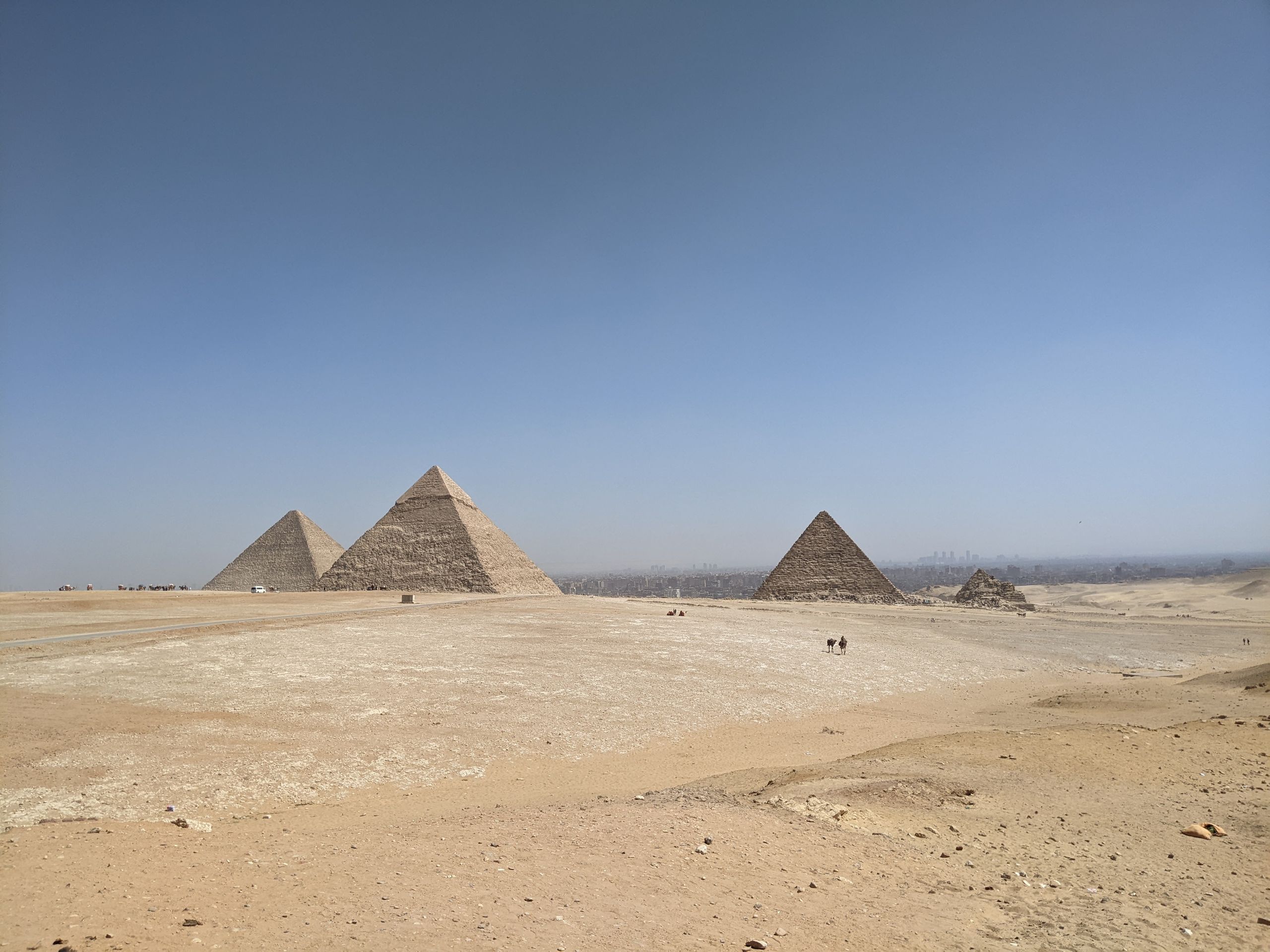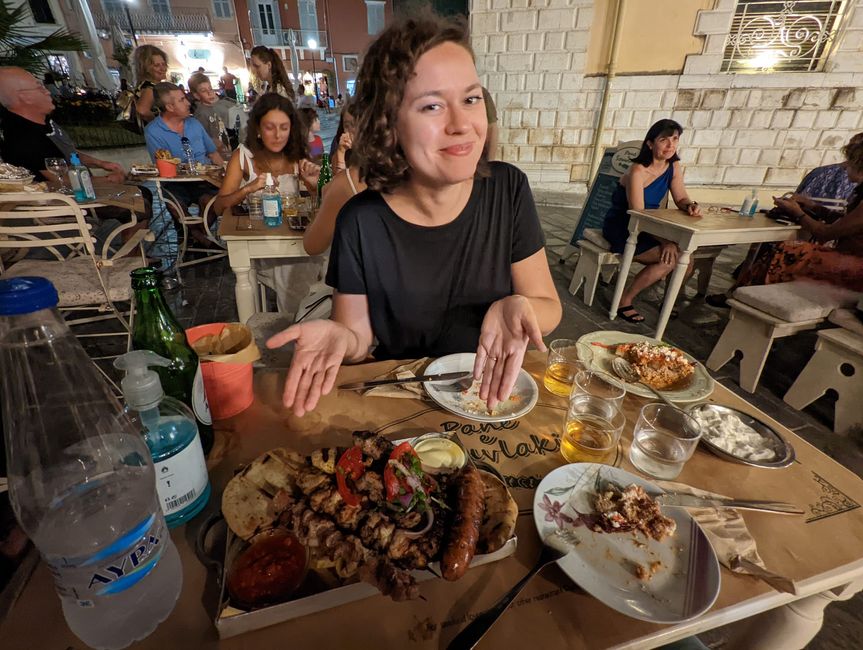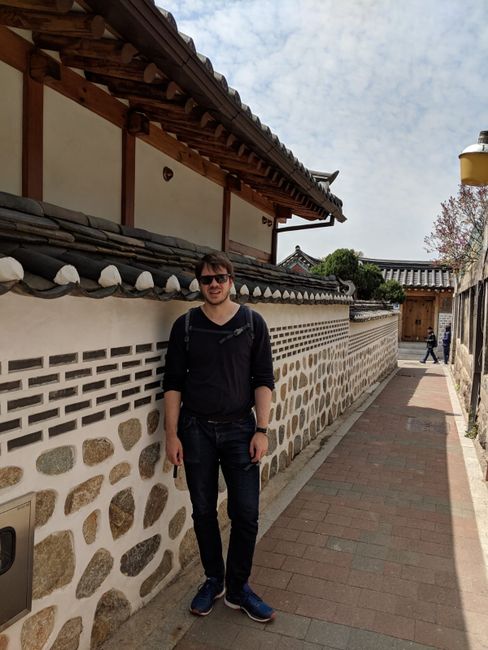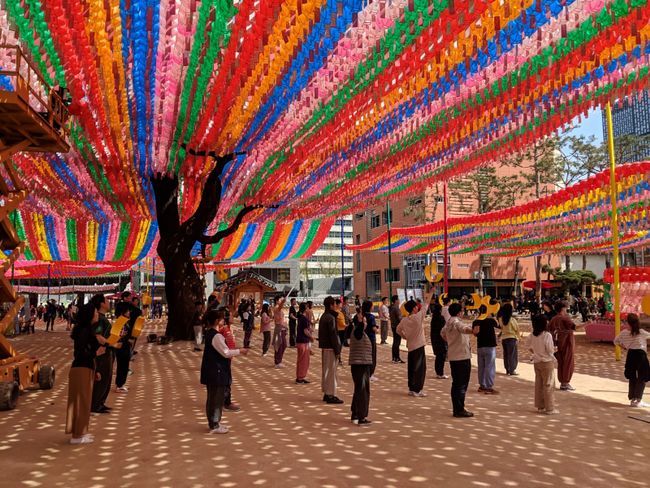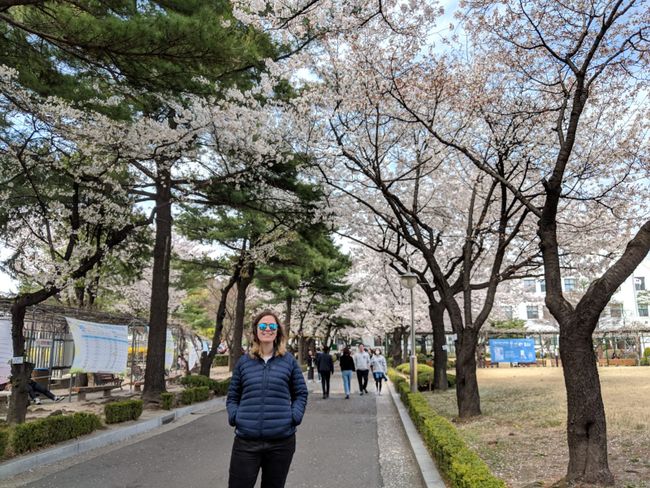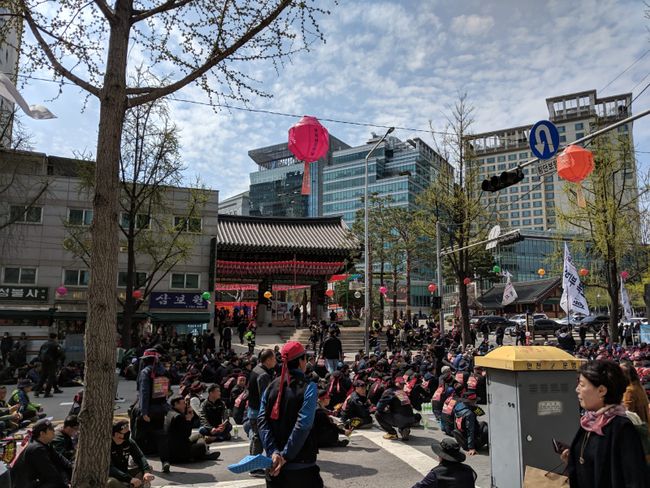Seoul - Hanok and Demo Fever
Жарияланды: 15.04.2019
Ақпараттық бюллетеньге жазылу
After a late breakfast (sounds contradictory), we take a walk through the hanoks (traditional Korean city houses) in the Bukchon district. The path leads through winding, narrow alleys past trendy shops and entire residential complexes where courses in traditional Korean arts are offered. This can range from handkerchief dyeing to knot tying to zither playing.

The houses are beautifully restored and you constantly get impressive views of modern Seoul - very interesting contrasts. It seems popular with tourists to wear traditional Korean costumes (hanbok). I can't quite understand what would make someone wear the cheap polyester imitations in the strong sunlight - you just sweat in them and above all you immediately see the difference to the REAL costumes, which are made of beautiful silk and ramie. Well, people obviously have a lot of fun with it. Photos are taken everywhere, but the hanoks and hanboks are also very photogenic. Especially in combination. :)
After that, we go to the Insadong district for a stroll and lunch. We eat delicious grilled mackerel and once again receive what feels like a thousand plates of other delicacies. My heart sinks as I taste the soup and a shell floats to the surface. I am allergic to mussels and have never dared to try other shellfish after that. Here I am being stared at by a shell of unknown species. Uh oh, now it's time to hope for the best! So we decide on a program that can be canceled at any time and go to the National Museum of Korea - free entry! On the way, we pass the Jogyesa Temple, the largest active Zen Buddhist temple in Korea. What hustle and bustle: first we have to walk through a demonstration by a trade union, which blasts out deafening slogans and music. The prayer is just starting at the temple, which is also broadcast outside the prayer room via loudspeakers. The monotonous chanting of the monk mixes with the socialist slogans of the nearby demonstration. In addition, a group of people is practicing a choreography for the big parade on Buddha's birthday on May 5th - of course with their own music.
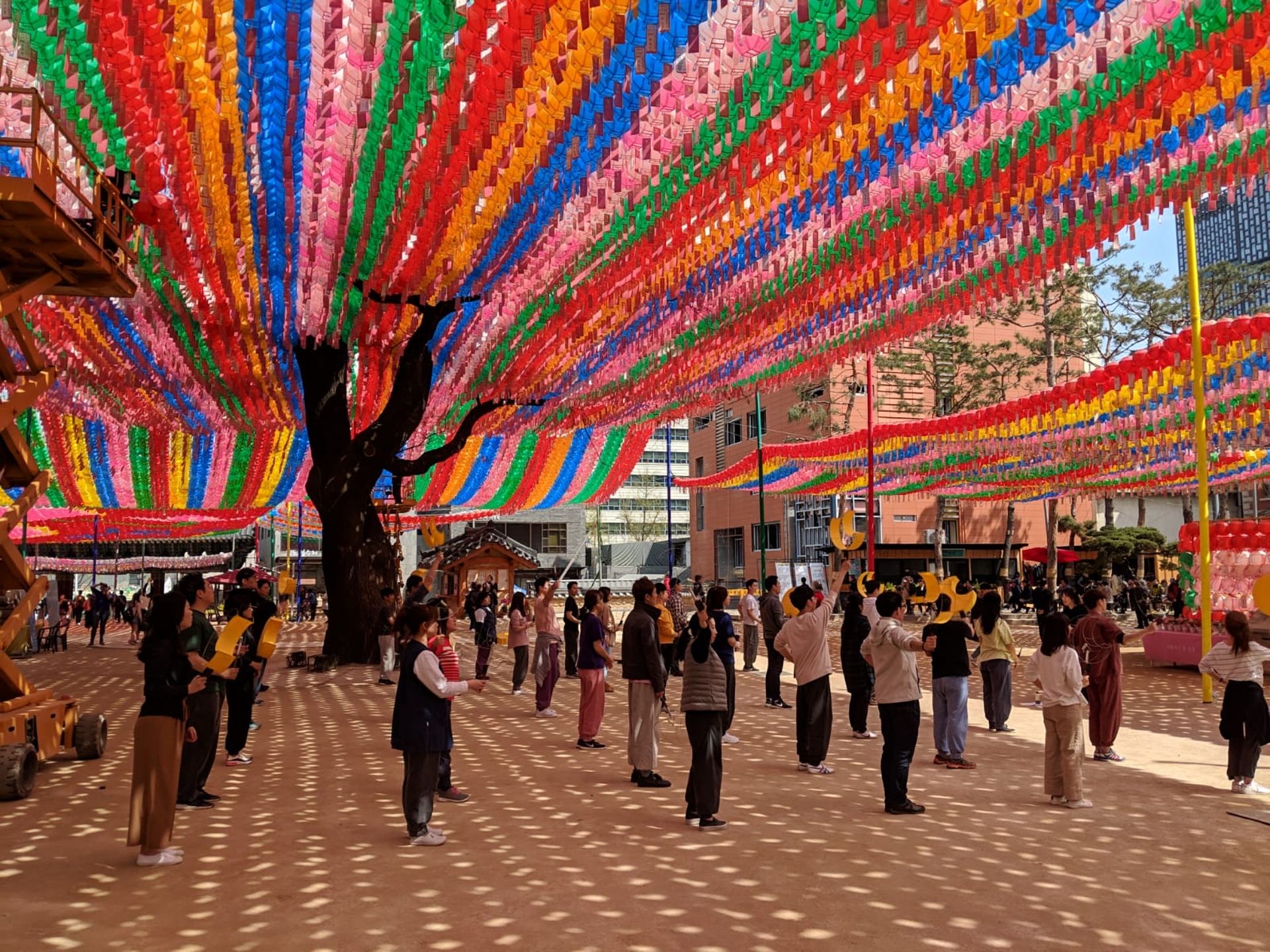
What a noise! Whoever was hoping for a solemn visit to the temple was completely wrong. Escape forward and into the museum!
Truly incredible treasures open up to us there. Every now and then, we can't help but compare them to Chinese achievements ("Who invented it?"), but it is clear that the Koreans had an equally sophisticated sense of aesthetics, philosophy, and above all - power claims. However, during the exhibition and on other occasions, it becomes clear that comparisons with China or Japan are not appreciated. The multiple conquest of Korea by Japan over the last centuries and especially from 1910 to 1945 has deeply wounded the Korean soul. Japan is omnipresent in Seoul, but better not to mention it. Unless it's about food, Koreans are very open to all influences.
In the evening (and after I was safe from an attack by the mussels), we only venture into a snack bar around the corner. Bibimbap with beef - mhmmm. Not served with a smile, but still warming.
Ақпараттық бюллетеньге жазылу
Жауап
